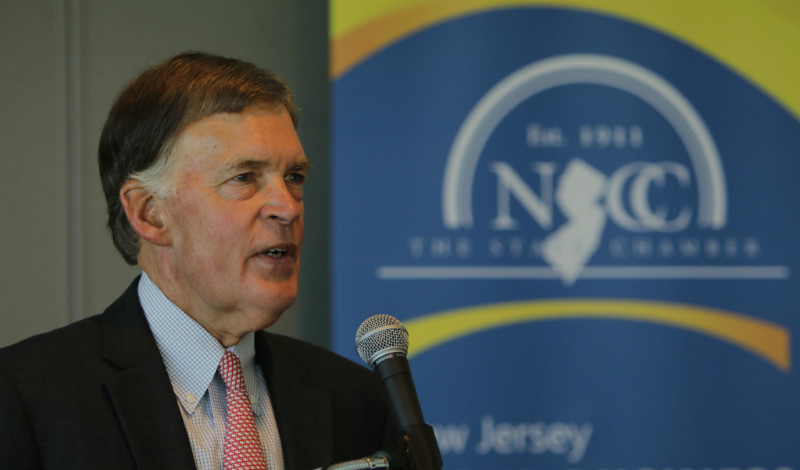Between Gov. Phil Murphy pursuing a millionaires tax and Senate President Stephen Sweeney’s planned 3 percent tax on corporations, the state has taken a U-turn from the days of a $7 billion tax incentive to lure one of the largest companies in the country to New Jersey.
Tom Bracken, CEO and president of the New Jersey Chamber of Commerce, said this new focus is harming the state’s competitive ability.
Not to mention the timing of it all.
Sweeney made his announcement the week Amazon was scheduled to visit Newark and a week before the governor’s budget address is due.
“If I’m Amazon and I’m looking at this, I shake my head,” Bracken said. “They’re trying to attract me and they’re doing all this and what they just did was audit the EDA and incentive program, and now they want to take money I got from the tax reform act and maybe I’ve already earmarked (that money). (As Amazon), I’m looking at that saying it’s not good timing to roll that out.”
But, beyond Amazon, the companies that are already here have even more reason to contemplate leaving the state.
It’s all about the math, Bracken said.
“The thing we need in the state is growth. We need to grow the economy. We need to grow revenue, but not by increasing taxes,” he said.
“If you do the math — the math is always sketchy. We’ve tried to do the math on the millionaires tax and don’t get anywhere near $650 million.”
Even in discussions with former state Treasurer Ford Scudder, the chamber has been unable to emulate the numbers.
And, in terms of the 3 percent tax proposal from Sweeney (D-West Deptford), the math is flawed, Bracken said.
The new federal tax law did reduce the corporate tax rate from 35 to 21 percent, and New Jersey’s tax law does allow for continued state and local deductions. But there are other factors at play.
“There are other things (corporations) used to do that they no longer can. What that means is the tax rate is going down, but they cannot deduct what they used to, so the taxable income goes up,” Bracken said.
There is a broader tax base from which New Jersey benefits, he said.
Here’s an example:
- If a company were making $1 million and paid the 9 percent tax in New Jersey, that nets the state $90,000 in taxes.
- Without the deductions, the taxable income increases to more than $1.1 million, netting the state $100,000 in taxes.
- Now, with Sweeney’s proposed 3 percent tax increase, the tax collected by the state for that one company goes up to $135,000.
- That’s a 50 percent increase from $90,000.
“We’ve talked about this ad nauseam — fully vet everything and completely understand the consequences. Then, intelligent decisions can be made,” Bracken said.
And the move to increase the taxes for corporations is bringing back discussions of the government shutdown related to former Gov. Chris Christie’s attempt to raid the reserves of Horizon Blue Cross Blue Shield of New Jersey to support certain programs as part of a budget deal last year.
“An outsider looking in is saying the former governor went after Horizon, the current Senate president wants to take more money from corporations … and help supplement the budget. It’s not a comprehensive tax reform plan. It’s taking bits and pieces of New Jersey and extracting money from segments of the state,” Bracken said.
He lauded the commission created by Sweeney, which includes state Sens. Paul Sarlo (D-Wood-Ridge) and Steven Oroho (R-Sparta), along with Assembly Majority Leader Lou Greenwald (D-Voorhees), to look at the state’s tax policies and figure out better ways to address the fiscal problems in the state.
“This should be under their purview,” Bracken said of the 3 percent tax bill.
“I am confident (the three legislators) will get down to nitty-gritty and figure this out,” Bracken said. “The key is there is much more here than meets the eye.”
